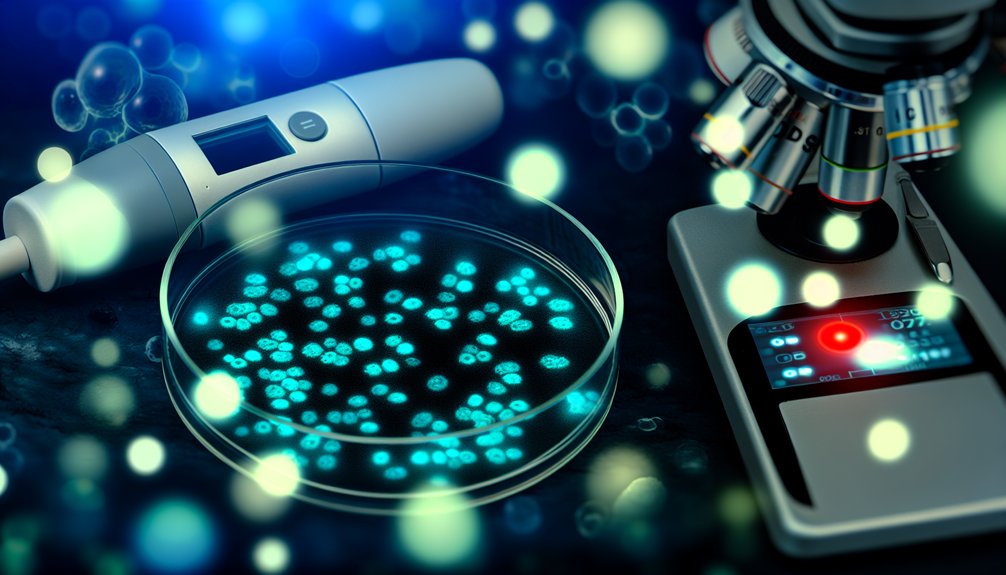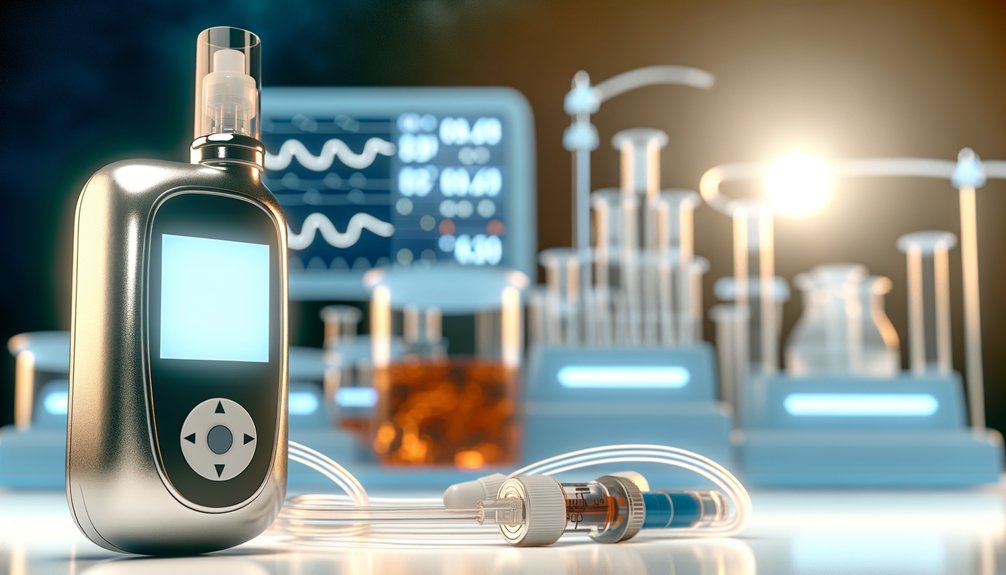Recent advances in type 2 diabetes cure research bring hope and excitement. In Shanghai, scientists achieved a breakthrough with stem cell treatments that create pancreatic islet cells, potentially allowing many to say goodbye to daily insulin shots. Innovative drugs are increasing beta cell mass considerably, and technological advances are making diabetes management easier than ever. Personalized medicine is changing the game, promising tailored treatments for better control. There’s a bright future ahead, and more inspiring developments await exploration.

As the sun rises each day, it brings with it hope and a chance for a healthier future, especially for the millions living with type 2 diabetes. Groundbreaking research has revealed remarkable advancements that could change the lives of those struggling with this condition.
For instance, researchers in Shanghai have claimed the first-ever cure through stem cell-derived islet transplantation. By using a patient’s own endoderm stem cells, they create pancreatic islet cells, known as E-islet cells, which can regulate blood sugar levels. This therapy targets the fundamental issue: the dysfunction of insulin-producing cells, rather than merely managing symptoms. Imagine, for many, the end of daily insulin injections—a dream slowly becoming a reality. New precision medicine approaches are enabling doctors to customize treatments using routine clinical measures, transforming how diabetes is managed globally.
Meanwhile, at the Icahn School of Medicine, scientists have developed drugs that boost the mass of human beta cells, which are vital for insulin production. One drug, harmine, showed a 300% increase in beta cell mass on its own and, astonishingly, a 700% increase when combined with other medications. This combination therapy represents a promising pathway for over 500 million diabetics worldwide, potentially restoring pancreatic function and offering a new lease on life. Furthermore, modern insulin pumps and hybrid closed-loop systems are revolutionizing diabetes management by automating insulin delivery based on real-time glucose monitoring.
Additionally, the field is seeing a shift towards personalized medicine. New models are being created to predict the most effective diabetes drugs based on individual characteristics. This approach not only improves glycemic control but also reduces complications, allowing for tailored treatment plans that move beyond guesswork. Effective insulin production is crucial for managing blood glucose levels, and advancements in this area are paving the way for more comprehensive treatments.
The future of diabetes management is bright, with early intervention strategies and technological innovations on the horizon. Researchers are exploring gut-targeted procedures and even artificial pancreas systems for automated control of blood sugar levels.
As these advancements continue to evolve, they bring with them the promise of a life less burdened by diabetes, filled with hope and renewed possibilities.
